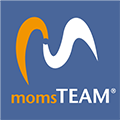
Sports safety training for youth sports coaches is not mandated by federal law, nor is it generally required by law at the state or local level. While some states now require that coaches at the youth level become educated about concussions, most do not.
As a result, while 6 out of 10 youth sports coaches report in a recent survey that they have received some form of sports safety training - with training in CPR (21%) and first aid (13%) the most common form of training - fully 40% have not had any safety training at all.
Best youth sports health and safety practices require that those who coach youth sports, regardless of the age of the athlete or the level of competition receive training in:
- first-aid
- CPR
- the use of an AED
- recognizing the signs and symptoms of sport-related concussion; and
- sports-specific injury prevention and treatment, such as the use of appropriate warm-up and cool-down exercises to minimize lower leg injuries, how to properly tackle and block (football), deliver and receive a body check (ice hockey, lacrosse), and head the ball (soccer) to minimize the risk of concussion and repetitive head impacts, the use and proper maintenance of protective equipment, such as helmets, pads, and mouth guards, and recognizing the signs of overuse injury.
Unsure about whether your child's coach is prepared for emergencies, knows about first-aid or the warning signs of overuse injury? Here are some questions to ask your child's coach:
- If a child is injured, do you know what do?
- Do you how to reach me quickly in case of a medical emergency involving my child?
- Do you have a well-stocked first aid kit at all games and practices?
- Have you received basic first-aid training, including training in CPR and the use of an AED
- Have you received specific first-aid training for the sport your coaching?
Since the majority of youth sports coaches are not required by their club or league to have any type of safety training, parents need to:
- Learn about the safety risks of the sport your child plays. You may have heard the ad slogan "An educated consumer is our best customer." It applies to sports programs as much as to buying clothes or furniture. Parents who are aware of the risks of the sport their child plays can do a lot to minimize its hazards.
- Lobby local youth sports groups to require that all their coaches participate and complete a safety training program, some of which are now available at reasonable cost on line, in order to coach. (This will be one of the requirements for certification of a program under MomsTEAM Institute's SmartTeam program), and
- Insist that the training for all youth coaches cover three areas: sport-specific first aid, CPR and the use of an AED, and skill development, with an emphasis on coaching safe playing techniques (such as the proper way to head a soccer ball, or make a tackle in football)
- Encourage youth sports programs to hire a certified athletic trainer or establish a relationship with a local sports medicine physician or practice group to provide game-day coverage.



